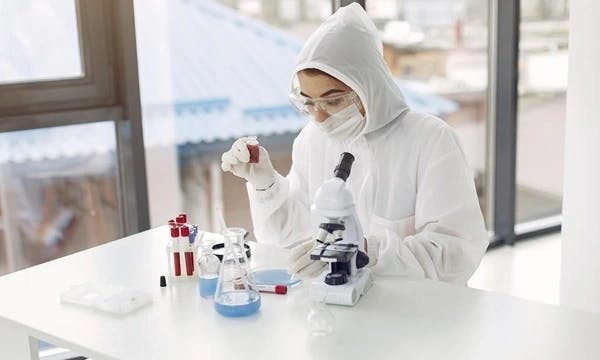A new breakthrough in quantum computing moves scientists closer to making multi-tasking quantum computers. This new development will allow systems to solve complex real-world problems that top computers today cannot.
A team at Sussex University has successfully transferred quantum information between computer chips at records speeds and accuracy, according to a report by BBC.
“Right now we have quantum computers with very simple microchips,” Winfried Hensinger, a professor leading the research at Sussex University said. “What we have achieved here is the ability to realize extremely powerful quantum computers capable of solving some of the most important problems for industries and society.”
A challenge that has persisted is the need to transfer quantum information between microchips quickly and reliably as the quantum information degrades and errors are introduced. Hensinger’s team has made a breakthrough that could overcome this challenge.
The Sussex University team developed a system to transport information from one chip to another with a reliability of 99.999993% at record speeds, showing that microchips “could be slotted together to make a more powerful quantum computer.”
Current state of quantum
Quantum particles can be in two places at one time, so researchers have been looking into harnessing that property to develop computers that can do multiple calculations simultaneously, instead of one calculation at a time like standard computers.
For years now, computer scientists have been working toward effective quantum computers and organizations like Google, IBM and Microsoft have developed simpler machines. While the new breakthrough is important in the quantum computing field, there’s still more work to be completed for developing practical systems.
“To build the type of quantum computer you need in the future, you start off by connecting chips that are the size of your thumbnail until you get something the size of a dinner plate,” said Michael Cuthbert, director of the National Quantum Computing Center in Didcot, Oxfordshire. “The Sussex group has shown you can have the stability and speed for that step.”
He added: “But then you need a mechanism to connect these dinner plates together to scale up a machine, potentially as large as a football field. In order to carry out realistic and useful computations, and the technology for communications for that scale is not yet available.”
Quantum possibilities
The ability of quantum computers to solve problems at near-unimaginable speeds will allow for the engineering landscape to be completely different. There are numerous applications, including optimization, machine learning, cryptography and simulation.
Kalyan Kumar, CTO and Head of Ecosystems at HCLTech explained that quantum computing is a trend that will fundamentally shape the future of human existence.
“Quantum computing is going to create completely new possibilities and change the way we live and understand the world,” said Kumar.
Along with improved engineering, quantum computing could potentially be used to design drugs quicker by accurately simulating their chemical reactions, which current supercomputers cannot do. Additionally, more accurate systems to forecast weather and project the impact of climate change could be developed with quantum.




